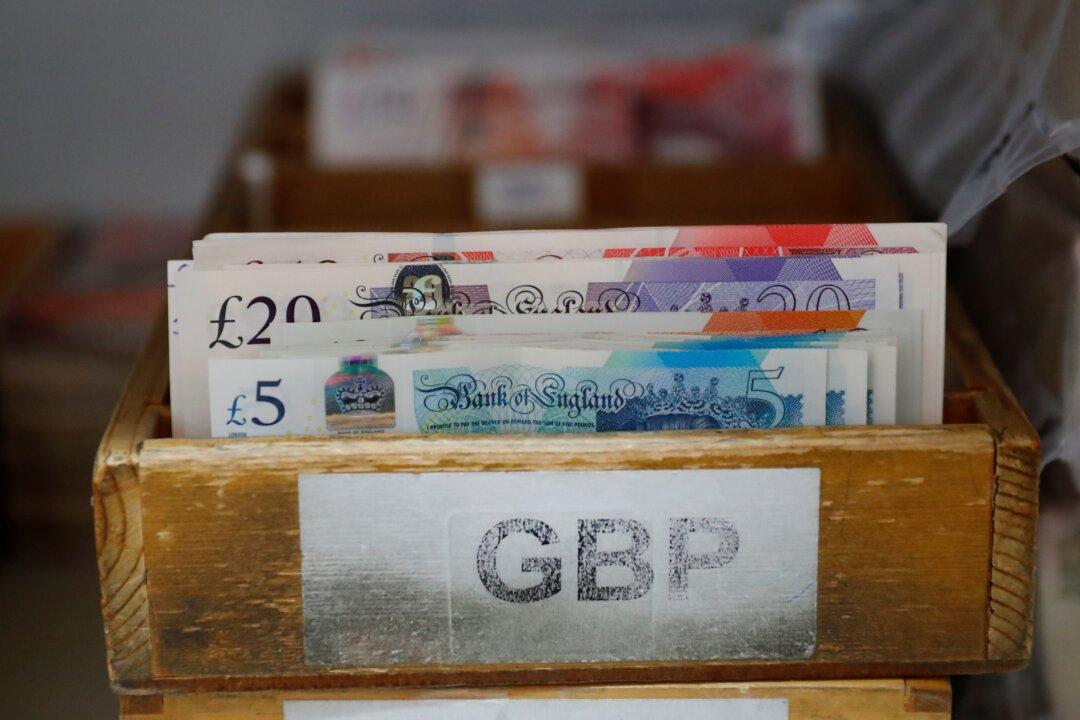The inflation rate in the UK rose to 9.1 percent in May, remaining at 40-year highs and deepening the squeeze on households, latest data show.
According to the Office for National Statistics (ONS), the rate of consumer prices index inflation rose from 9 percent in April to 9.1 percent in May—the highest since early 1982—largely driven by food and non-alcoholic beverages, transport and housing, water, electricity, gas, and other fuels.





